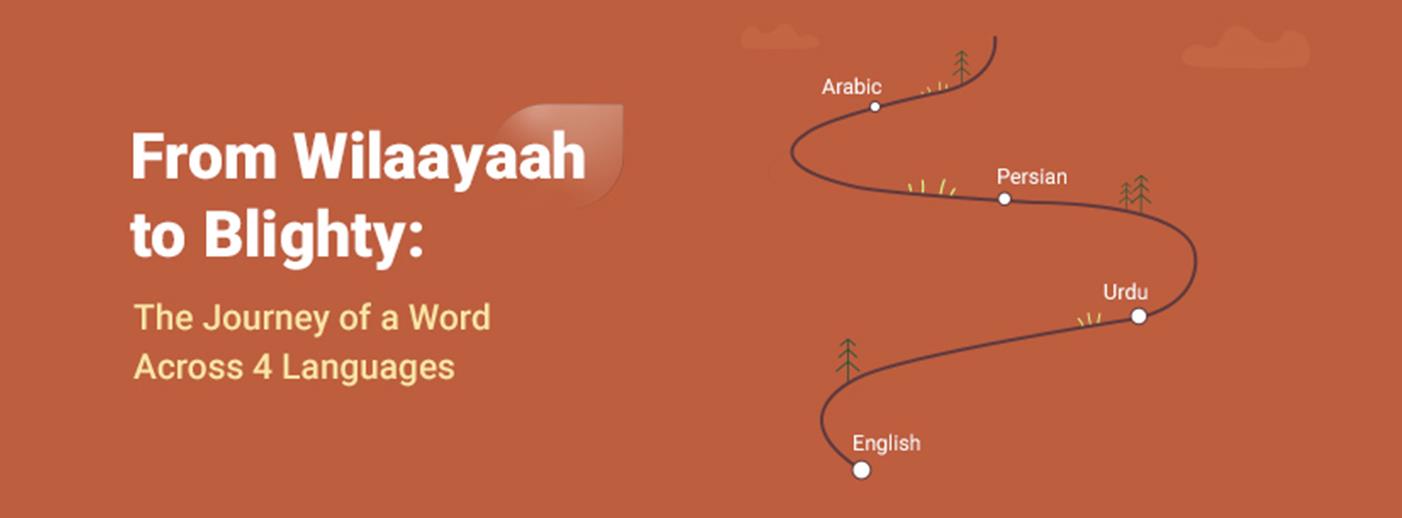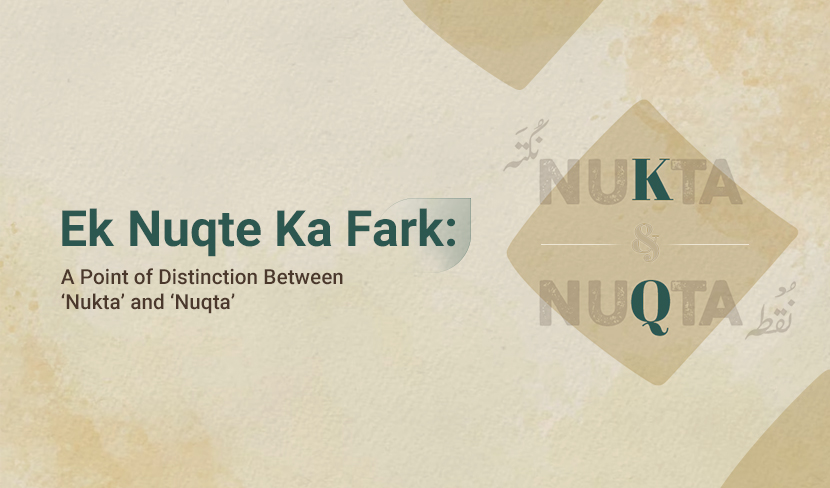अधिक खोजे गए शब्द
सहेजे गए शब्द
खिस्यानी बिल्ली खम्बा नोचे
जिसे क्रोध आ रहा हो वह अपनी खीझ या क्रोध दूसरों पर उतारता है, लाचारी में आदमी दूसरों पर क्रोध करता है, लज्जित व्यक्ति दूसरों पर अपनी लज्जा उतारता है, निर्बल की खीझ
कोशिश
कोई काम करने के लिए विशेष रूप से किया जानेवाला प्रयत्न, मेहनत, दौड़ धूप, प्रयत्न, प्रयास, चेष्टा, उद्योग, श्रम, उद्यम, उपाय, परिश्रम
आठ बार नौ त्योहार
सुख-सुविधा और आराम का शौक़ या लगन ऐसा बढ़ा हुआ है कि युग और समय उसको अल्प व्यय नहीं करने देता
चमनिस्तान
ऐसा बाग़ जहाँ फूल ही फूल हों, ऐसी जगह जहाँ दूर तक फूल ही फूल और हरा भरा नज़र आए, वाटिका, चमन, बाग़
दादरा
संगीत में एक प्रकार का चलता गाना (पक्के या शास्त्रीय गानों से भिन्न), एक प्रकार का गान, एक ताल
From Wilaayaah to Blighty: The Journey of a Word Across 4 Languages

Travel stories are one of the most loved genres amongst people. From young children to grown-ups, everyone enjoys long tales of both real and fictional travels. But, have you ever heard stories about the journey of a word? If not, we have one in store for you! Today, we are going to narrate the tale of the Arabic word Wilaayaah which travelled across 4 languages to finally reach its destination in English as Blighty.
The transaction of words between languages is a phenomenon as old as the existence of language itself. The borrowing and lending of words becomes fairly common when people socialise with people of different backgrounds, cultures and linguistic communities. Sometimes, the pronunciation and meanings of loaned or borrowed words are tweaked according to the phonology, morphology and semantics of the language that borrows it. This results in a modified version of the word coming into existence. Common examples are the English words bungalow (bangla in Sanskrit) and cot (khaat in Sanskrit).
The word Wilaayaah also went through similar modifications as and when it was loaned by other languages. In Arabic, the word Wilaayaah refers to a state or province. It is also roughly used to denote an authoritative institution or individual. From Arabic, the term was adapted by the Persian people in the form of ‘Vilaayat’. The meaning of vilaayat in Persian was modified from that of the Arabic one. Vilaayat, in Persian referred to the foreign land of Iran.
In the 8th century, the Persian people came to India with their food, architecture, literature, art and their language. The Urdu language which had started developing from the 12th century onwards, borrowed many words from many languages. One of these languages was Persian, which was commonly spoken in north India.
In the Urdu vocabulary, the modification in the word Vilaayat was essentially semantic. The term Vilaayat in Urdu meant a foreign land, especially in the context of Britain and Europe. The next modification of this word occurred at the phonetic level. Since different dialects in India have different pronunciations for the same word, Vilaayat was, and still continues to be pronounced as Bilaayat in the northern states of Bihar, Jharkhand and Uttar Pradesh.
The word also underwent another set of modification, this time at the syntactical (grammatical) level. Adding ‘-ii’ to a term to make it an adjective is a linguistic norm found in many Indian languages, especially in Urdu and Hindi. For example, ‘qiimat’ which means the price or value of an entity, becomes ‘qiimtii’ to denote that something is precious or valuable. Similarly, Vilaayatii and its erroneous version Bilaayatii became terms that referred to something or someone of a foreign origin, especially from British or English roots.
The next and final destination of the word was its migration in the English language. Bilaayati, the incorrect version of Vilaayat, was loaned in English in the form of ‘Blighty’. The term Blighty in English generally means one’s homeland (especially Britain). Although not very commonly used in everyday conversations, the term Blighty gained considerable popularity during the second world war. The Concise Oxford English Dictionary (COED) states that Blighty means: “Britain or England, as used by soldiers serving abroad in the first and second World Wars.” It is also used by war veterans to praise their homeland, for instance, ‘What a pleasure to serve dear old Blighty!’
And this, dear readers, was the travelogue detailing the journey of the Arabic word from Wilaayaah to the English word Blighty. We hope you enjoyed this foreign trip across 4 languages!
Delete 44 saved words?
क्या आप वास्तव में इन प्रविष्टियों को हटा रहे हैं? इन्हें पुन: पूर्ववत् करना संभव नहीं होगा





